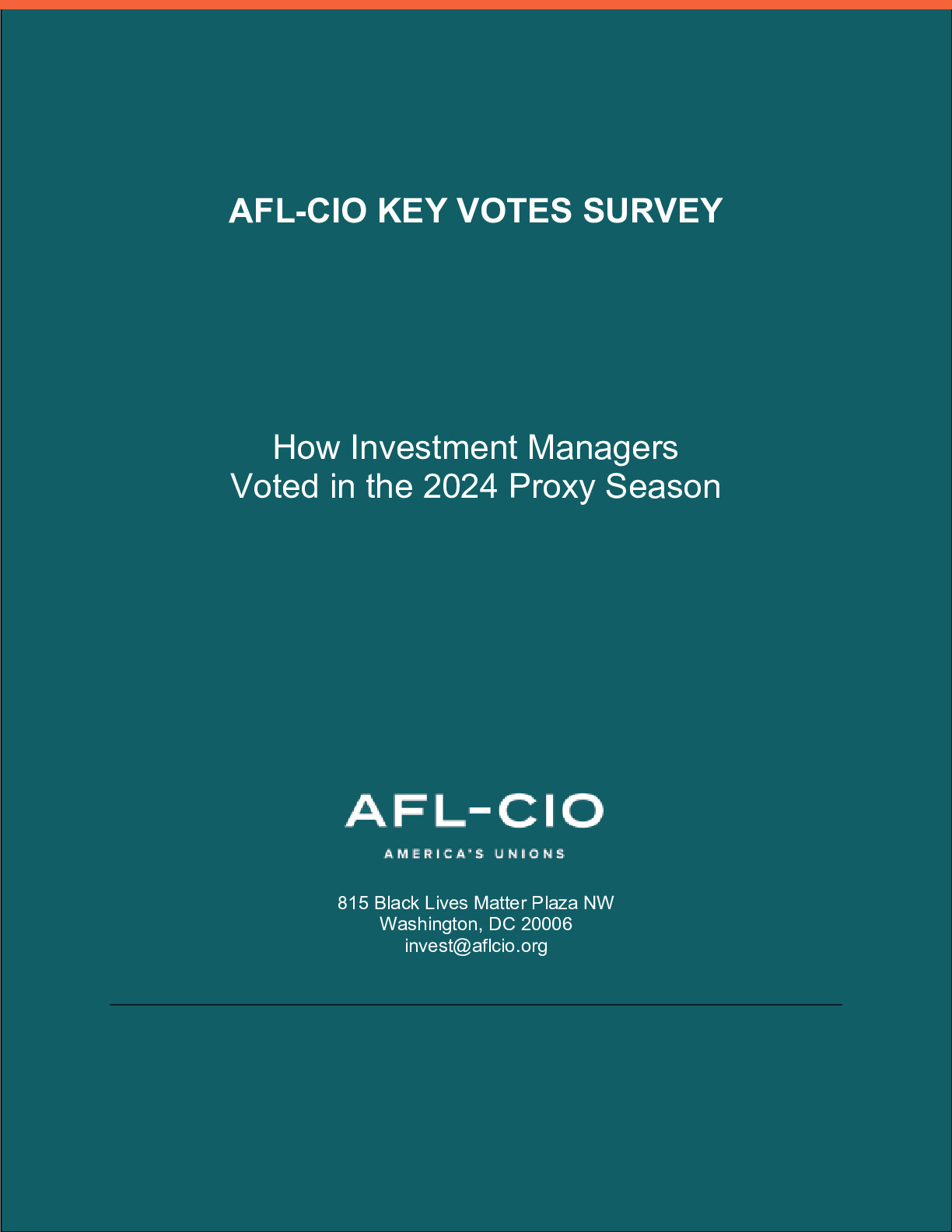Once a year, every public corporation routinely holds a shareholder meeting. Shareholders make critical decisions shaping each company’s governance—decisions such as who will serve on the board of directors, how senior executives will be paid, and what general policies the shareholders will recommend to the company’s board of directors.
The AFL-CIO Key Votes Survey is a record of how investment managers, mutual funds and proxy voting consultants voted the shares they manage on key issues at these shareholder meetings during the proxy season. Retirement plans generally delegate the authority to vote their shares to their investment managers, mutual funds, or a specialized proxy voting consultant.
The AFL-CIO Key Votes Survey is designed to help retirement plan trustees fulfill their fiduciary duty to monitor the proxy voting performance of investment managers, mutual funds, and proxy voting consultants. Because proxies are a plan asset, ensuring that they are voted prudently and solely in the interests of plan participants and beneficiaries is part of a trustee’s fiduciary duties.
The AFL-CIO Key Votes Survey is intended to help trustees fulfill their fiduciary duties by reviewing the voting records of investment managers, mutual funds, and proxy voting consultants. Good corporate governance matters to shareholders and proxy voting is the most direct means for shareholders to exercise oversight in relation to the corporations they own.
The shareholder proposals included in the AFL-CIO Key Votes Survey are submitted by pension plans, investment managers, and other investors for votes at annual shareholder meetings. These shareholder proposals represent a worker-owner view of value that emphasizes management accountability and good corporate governance.
A score representing the percentage of votes cast in favor of the selected shareholder proposals and a corresponding tier group categorization are assigned to each firm to assist trustees in evaluating the relative proxy voting performance of competing investment managers, mutual fund families, and proxy voting consultants.
Please note that the AFL-CIO Key Votes Survey is for informational purposes only, and is not intended to provide, and should not be relied on for investment or legal advice. Retirement plan fiduciaries should consult their own financial and legal advisors to evaluate the merits and risks of any investment decision.


